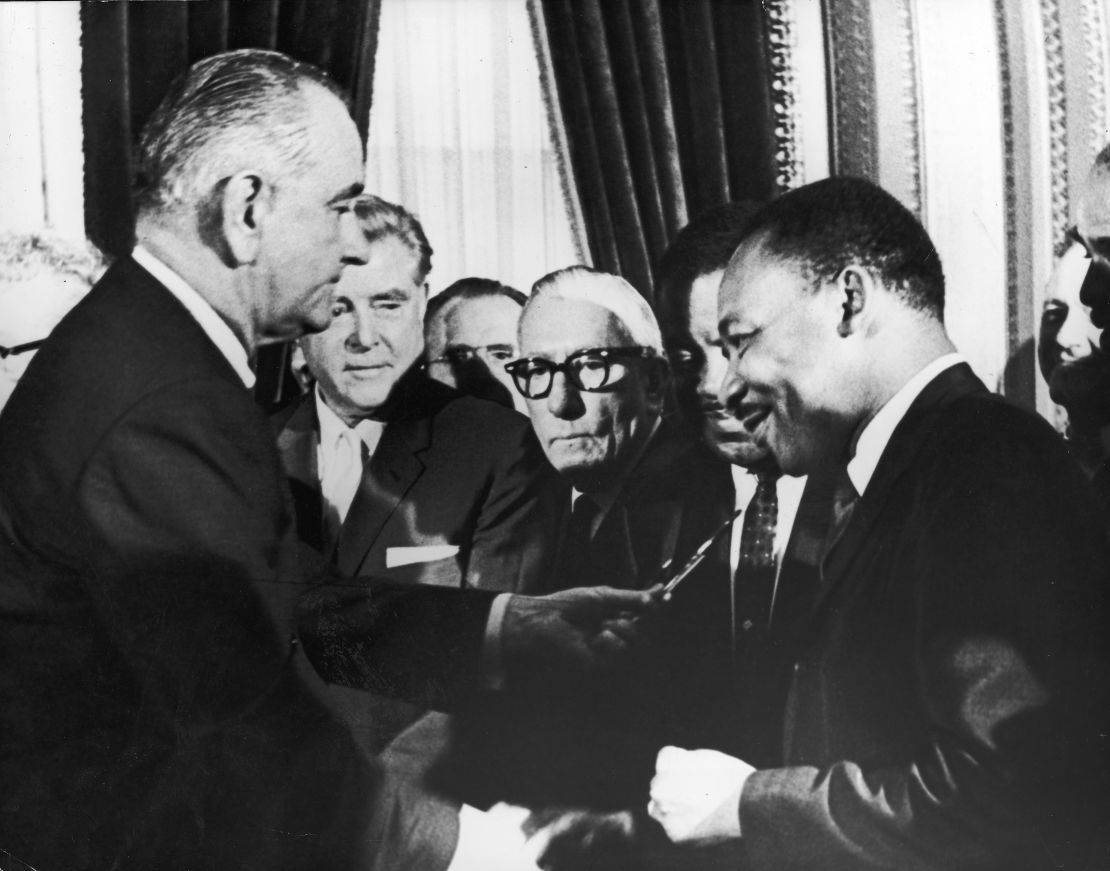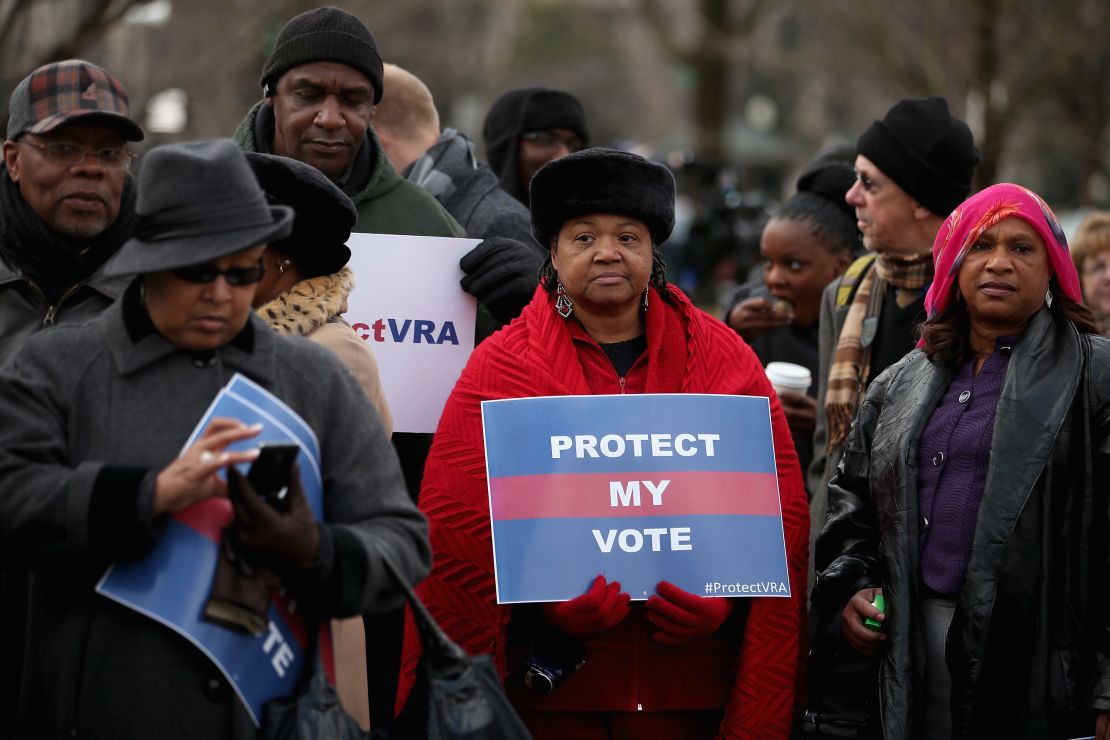Story highlights
Obama administration takes new approach to voting rights enforcement following court ruling
Legal challenge to strict Texas law approved in 2011 will be test case
Supreme Court in June invalidated key enforcement part of Voting Rights Act
Previous formula used to determine which states, mostly in the South, needed special oversight
The Obama administration will sue to halt a Texas requirement that voters show identification at the polls, signaling a new effort on voting rights enforcement following a U.S. Supreme Court ruling this year that threw out a key part of a landmark federal law.
The Justice Department said on Thursday that had put in motion a plan to seek a court order declaring that the strict 2011 Texas law violates the Voting Rights Act and certain constitutional guarantees.
“Today’s action marks another step forward in the Justice Department’s continuing effort to protect the voting rights of all eligible Americans,” Attorney General Eric Holder said in a statement.


“The department will take action against jurisdictions that attempt to hinder access to the ballot box, no matter where it occurs,” he added.
A divided 5-4 Supreme Court in June invalidated the formula used to determine which states or local jurisdictions – mostly in the South – could remain under special federal oversight, requiring approval from Washington before they can change voting procedures.
That blunted much of the government’s enforcement power in states and localities with a history of discrimination at the polls.
But the decision did not change the fact it remains illegal to discriminate against a person when it comes to voting. But it does change how some states have been singled out.
Holder said previously the administration would use a different section of the Voting Rights Act that allows federal authorities to ask a judge to order a state to be placed under the preclearance regime. To do so the Justice Department must prove “purposeful” discrimination.
Texas will be test case of that tactic but a Justice Department spokesman said prosecutors may pursue similar action in other states with similar laws. Texas is the subject of two ongoing court fights over its voter identification law and the voting boundaries created by the legislature.
Texas Gov. Rick Perry reacted sharply to the move, building on previous comments from state officials that the administration was trying to circumvent the Supreme Court decision.
“The filing of endless litigation in an effort to obstruct the will of the people of Texas is what we have come to expect from Attorney General Eric Holder and President Obama,” he said in a statement. “We will continue to defend the integrity of our elections against this administration’s blatant disregard for the 10th Amendment.”
The Justice Department also announced on Thursday that it would file a motion to intervene in one of the redistricting cases, allowing it to formally present evidence about the impact of the state’s new voting map.
A federal court in the District of Columbia had previously held that Texas had failed to show that its redistricting plan and the voter ID law did not discriminate. But the Supreme Court decision vacated that ruling.
The NAACP praised the decision to challenge Texas, saying that Texas had a history of suppressing African American and Latino voters.
“The voter ID law in Texas is a solution in search of a problem. A Texas voter is more likely to be struck by lightning than to see someone attempt to vote fraudulently at the polls,” Sherrilyn Ifill, president and director-counsel of the group’s legal defense fund, said in a statement.
CNN’s Bill Mears and Jim Acosta contributed to this report.

